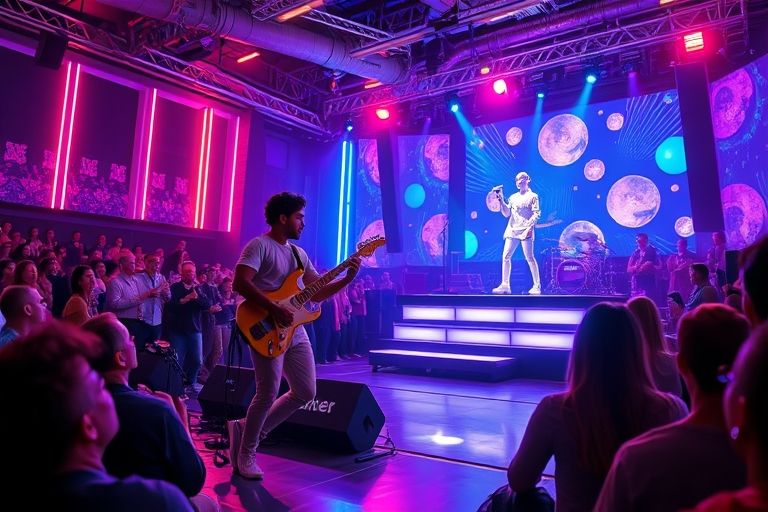
Music is an art form that has been around for centuries, evolving with technology and society. In recent years, we have seen a growing trend in the use of Artificial Intelligence (AI) in the music industry. AI is increasingly being used to enhance the creative process, with human and machine collaboration bringing about new and exciting musical possibilities.
One example of AI and music collaboration is Amper Music, a platform that allows users to create custom music tracks using AI algorithms. The user inputs the genre, mood, and length of the track, and the AI generates a unique piece of music. The user can then customize the track by adjusting the tempo, key, and instrumentation. This allows for quick and efficient music production, while still retaining creative control.
Another example is the collaboration between composer Benoit Carré and AI music software AIVA. Together, they created an album called "Icarus," which was entirely composed using AI algorithms. Carré provided the initial melodies and harmonies, and AIVA generated the rest of the composition. The result was a beautiful and unique blend of human and machine creativity.
There are several ways in which musicians and producers can collaborate with AI to enhance their creative process. One way is to use AI-powered tools to generate musical ideas, such as chord progressions or drum patterns. This can help to speed up the composition process and provide new and interesting musical ideas that may not have been thought of otherwise.
Another way to collaborate with AI is to use it to analyze and classify music. This can help with tasks such as genre classification or mood analysis, allowing for more targeted and effective music production.
The use of AI in music collaboration is a growing trend that has the potential to revolutionize the music industry. By combining human creativity with the efficiency and innovation of AI, musicians and producers can create unique and exciting musical experiences that were previously unimaginable. With the continued development of AI technology, the possibilities for music collaboration are endless.